Following three rounds of play, India, the Philippines and Poland are in the lead at the first Chess Olympiad for People with Disabilities.
The third round was opened by the Serbian Minister of Trade, Tourism and Telecommunications, Husein Memic.
Despite a very friendly and warm atmosphere at the tournament, the battles over the chessboard are becoming tougher, and the games are lasting longer. Despite the extended ‘work hours’, many of the players continued to spend time outside of the playing hall, waiting for their other teammates and analyzing the games, often with members of other teams. This is rarely seen in other chess events.
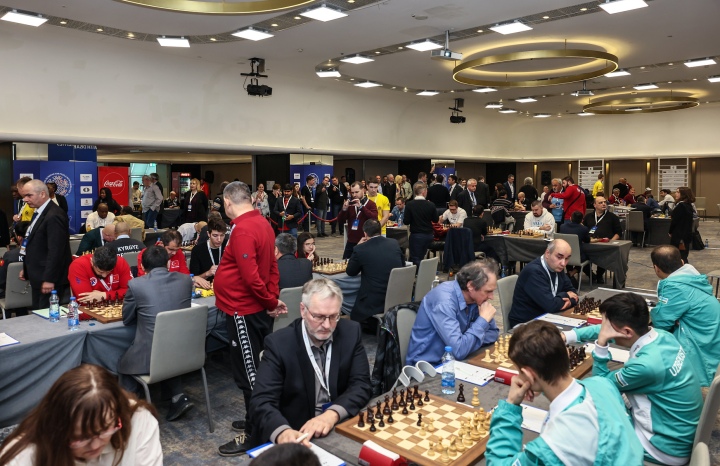
One of the guests at the event is Bharat Singh Chauhan – secretary of the All India Chess Federation and the tournament director of the 44th Chess Olympiad in Chennai. Speaking about the inaugural Olympiad for people with disabilities, Singh complemented FIDE and local organizers on putting this event together.
“It’s a very difficult tournament, and it’s a great initiative by FIDE to bring disabled people together”, Singh noted.
Singh believes that people with disabilities should have their own Olympiad: “It’s a right decision for FIDE to have a separate event for people with disabilities. It’s a right for them to have their own, separate Olympiad.”
Asked to summarize what it takes to organize a chess Olympiad, Singh singled out one thing – courage. “We had three months to organize a huge event [the 44th Olympiad in Chennai], and it was right after the peak of Covid.
Singh also compared the Olympiad for people with disabilities to other events: “Every tournament has different challenges. Here even – every player is different. It’s really difficult to say that this is an easy tournament to organize.”
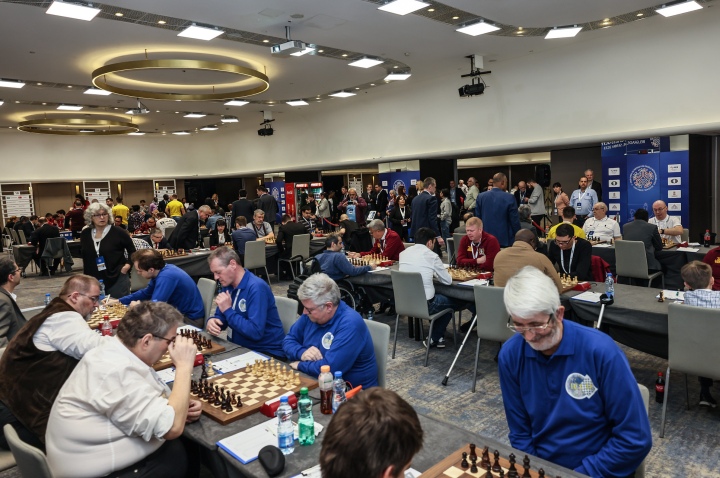
Top games and results of the third round: Tough at the top
The rating favourite Poland continued their hot run as they defeated the international squad of FIDE by 3.5:0.5. FIDE team’s Andrei Obodchuk and Natasha Morales Santos missed their chances to save the balanced endings.
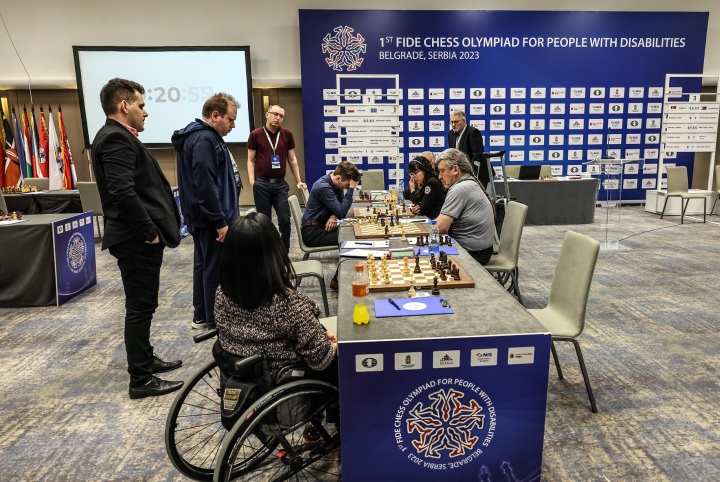
The most exciting match of the round was played by the teams of India and Israel. Until the last seconds, it looked like the battle would finish 2:2. Darpan Inani from India regretted he had missed an opportunity to make a big surprise. However, the chess Goddess Caissa gave Indian players a hand in the following position:
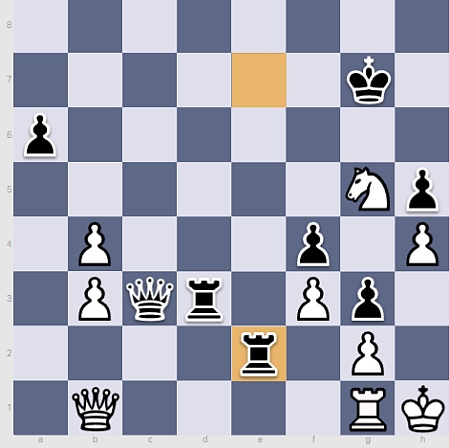
While the experienced GM Yehuda Gruenfeld was looking for the fastest road to win with black pieces, the time on his clock expired, and Shashikant Kutwal won the last game of the round and the whole match – 3:1!
The Philippines scored an impressive victory over the second team of Serbia (3.5:0.5). On board four, Darry Bernardo extended his material advantage with a small combination:
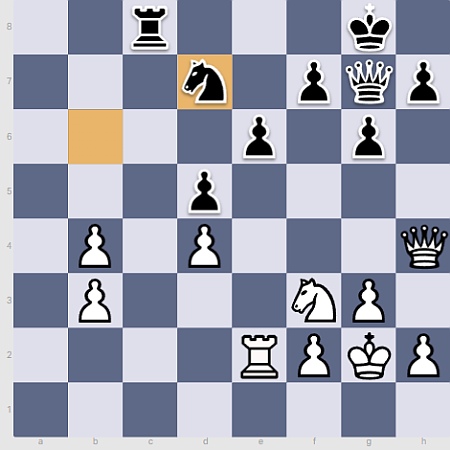
34.Qe7 Nf6 35.Rxe6! fxe6 36.Qxe6+ Qf7 37.Qxc8+ and Vladan Petrovic resigned on the 42nd move.
As a consolation for domestic fans, the first team of Serbia won in the ex-Yugoslav derby against Montenegro – 3:1.
The Cuban team quickly came to a 2:0 lead, and the draws on lower boards were enough for a 3:1 win against Romania. Pedro Morales Romero found an elegant way to break into the black king’s fortress:
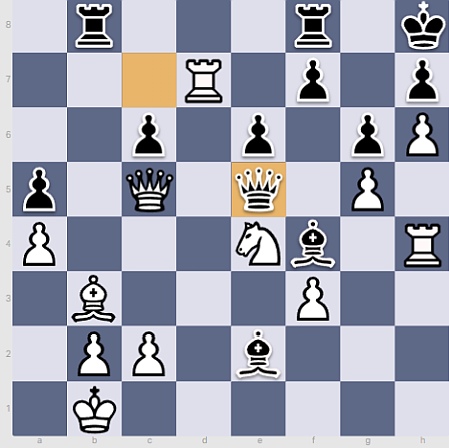
25.Rxf4! Qxf4 26.Bxe6! and Mihai Bursuc immediately resigned. After 26…fxe6 white queen penetrates the “seventh heaven”: 27.Qd4+ e5 28.Qa7, with an inevitable mate on the 7th rank.
The rise of the Uzbekistan team continued with a 2.5:1.5 win over Germany. It was interesting to see how Axadxson Kimsanboev created two different mating threats to Manuela Mekus. White sacrificed a piece to escape from the first one but fell to another one:
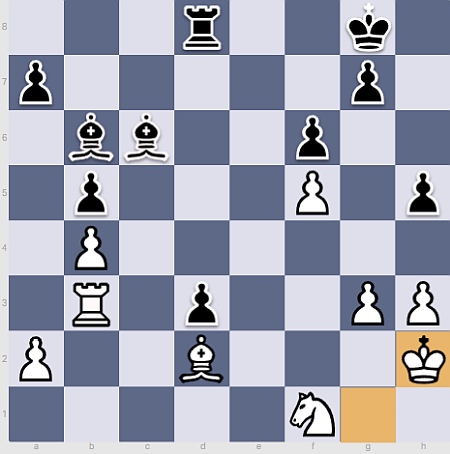
40….Re8 41.g4 h4 42.Ng3 hxg3 43.Kxg3 Bc7+ 44.Kh4 Kf7 45.Rxd3 Rh8#
The 4th-seed Croatian team recovered from surprising losses in the first two rounds. The maximal result of 4:0 against Panama came with some luck since Jesus Camilo Osorio lost a completely winning position on the 2nd board. The African derby ended with a convincing win by Zambia over Kenya – 3.5:0.5.
The full list of results from the second round can be found – here.
The pairings of the third round can be found – here.
The centenary of the birth of Svetozar Gligoric
To celebrate the centenary of the birth of one of the greatest chess players in history, Svetozar Gligoric (who was born in Belgrade on 2nd of February 1923 – died in Belgrade, on 14th August 2012), the Serbian chess federation will host a reception at the prestigious Veterans’ Club Building in Belgrade on Thursday, at noon.
The event will feature a short movie dedicated to the great Yugoslav and Serbian chess legend, accompanied by an exhibition of photos from Gligoric’s life and career.
Chess players, FIDE President Arkady Dvorkovich, as well as high-ranking officials of the Serbian government, will attend the event.
In honour of the great Gliga, a Blitz tournament will be held in Belgrade on the 5th of February, followed by a two-day Rapid event featuring strong international players.
Text: Milan Dinic (FIDE Press Officer) and Marjan Kovacevic (DIS reporter)
Photos: Mark Livshitz
About the event
The Chess Olympiad for People with Disabilities, a six-round Swiss tournaemnt is played at the Crowne Plaza Hotel in Belgrade, Serbia.
The time control is 90 minutes for the first 40 moves, followed by 30 minutes for the rest of the game, with an addition of 30 seconds per move starting from move one. The default time is 15 minutes.
The second round starts on Tuesday, January 31, at 3 PM CET time.
For more about chess for people with disabilities, you can go to the official website of the Players with Disabilities Commission: dis.fide.com/
You can find more information on the official website: dis-olympiad.fide.com/
About NIS

NIS (Petroleum Industry of Serbia) is one of the largest vertically integrated energy companies in Southeast Europe. Its core business includes exploration, production and refining of crude oil and natural gas, sales and distribution of a wide range of petroleum products, as well as implementing projects related to petrochemical operations and power generation. One of the NIS’ strategic commitments and fundamental practices is continuous improvement of the living standard of communities of the company’s operation. NIS also attaches immense importance to setting an example and supporting development of professional and children’s sport.

